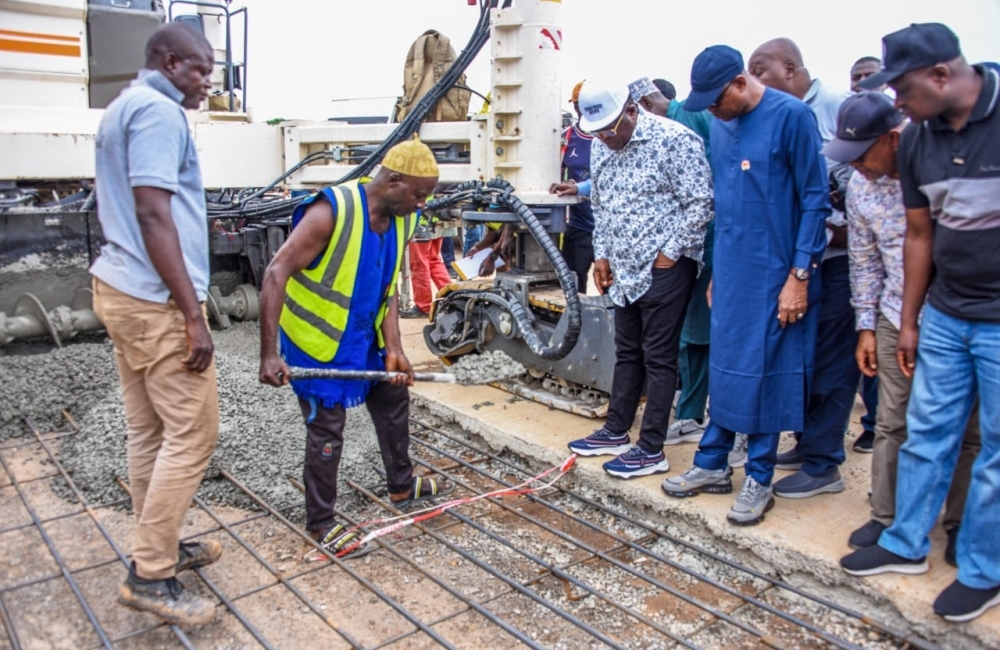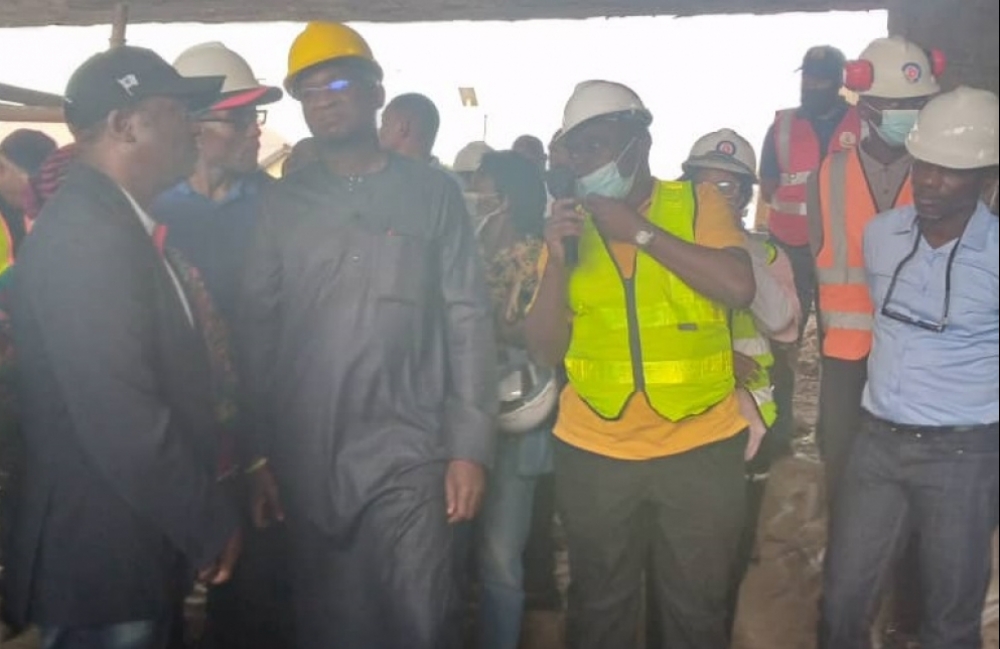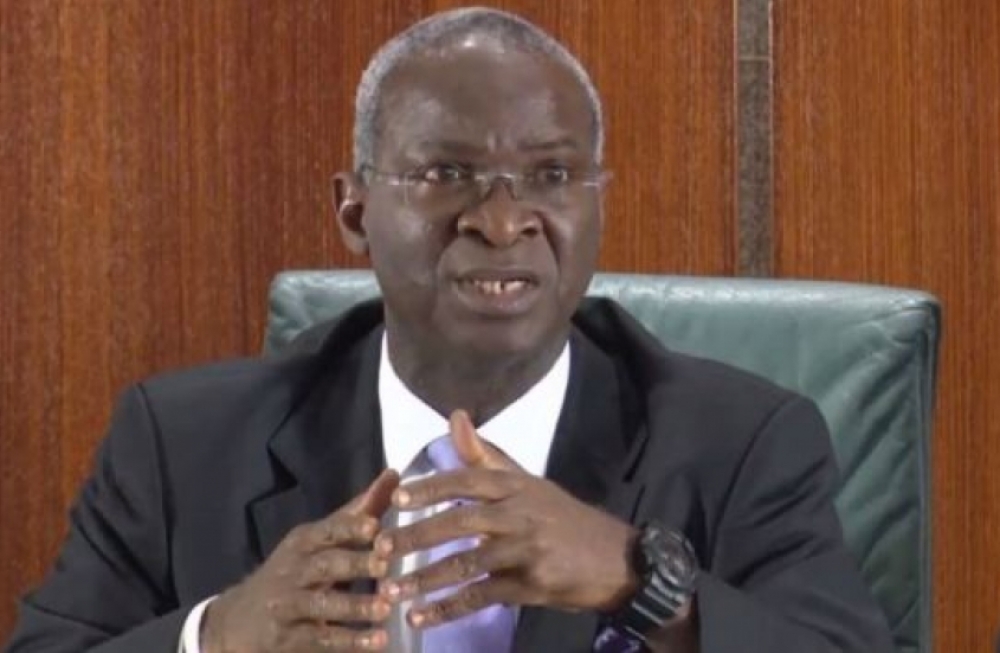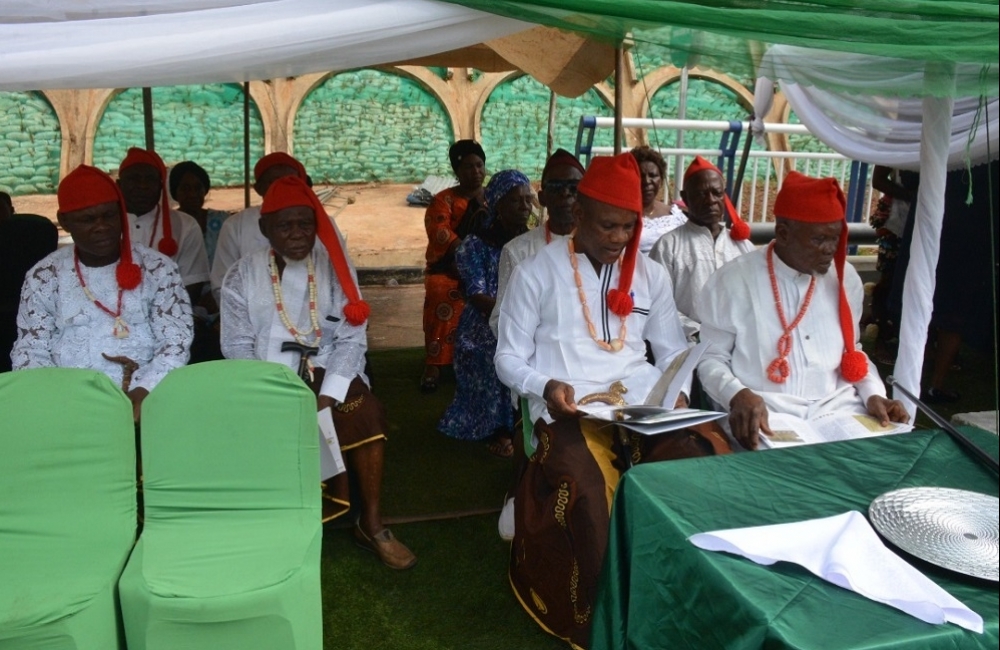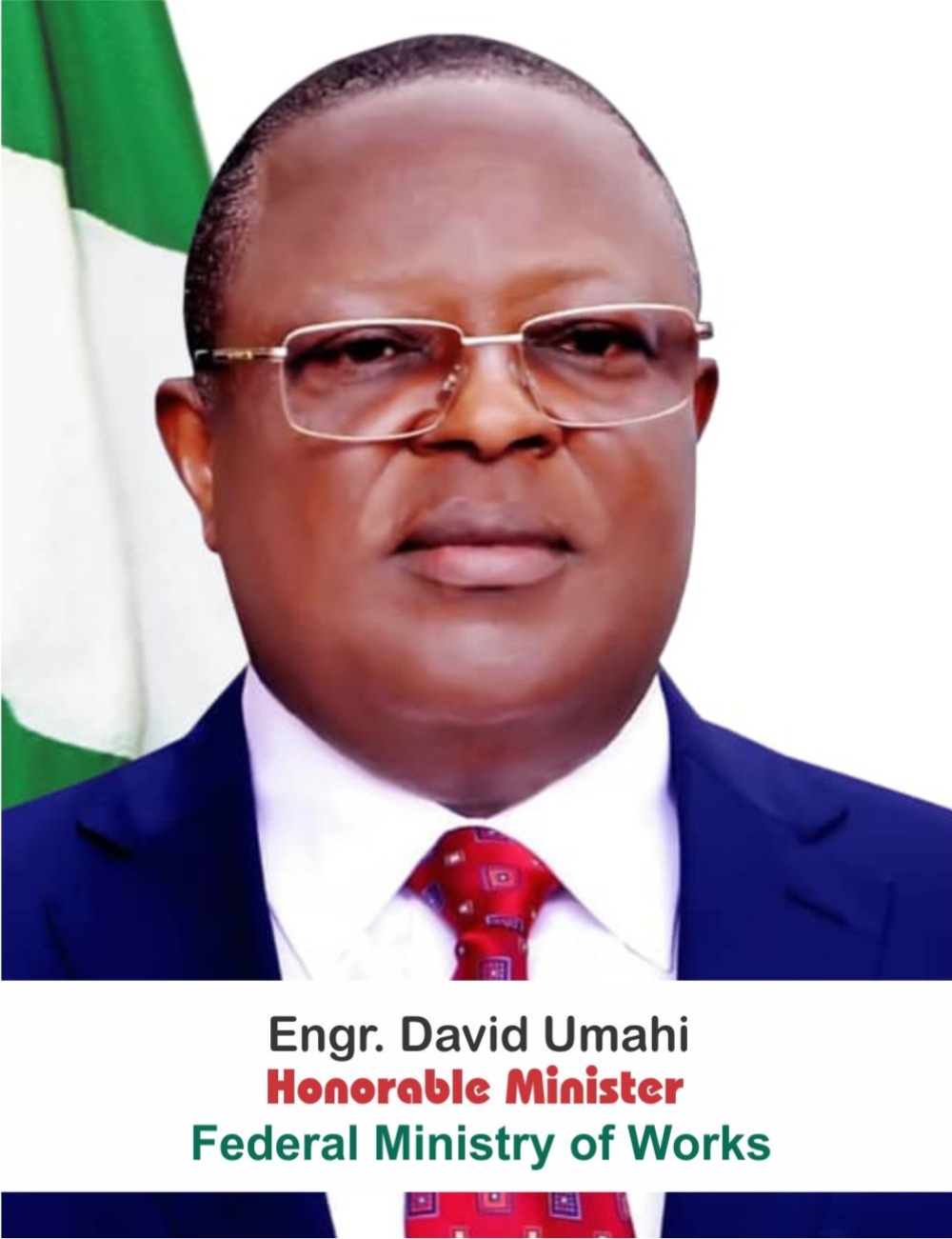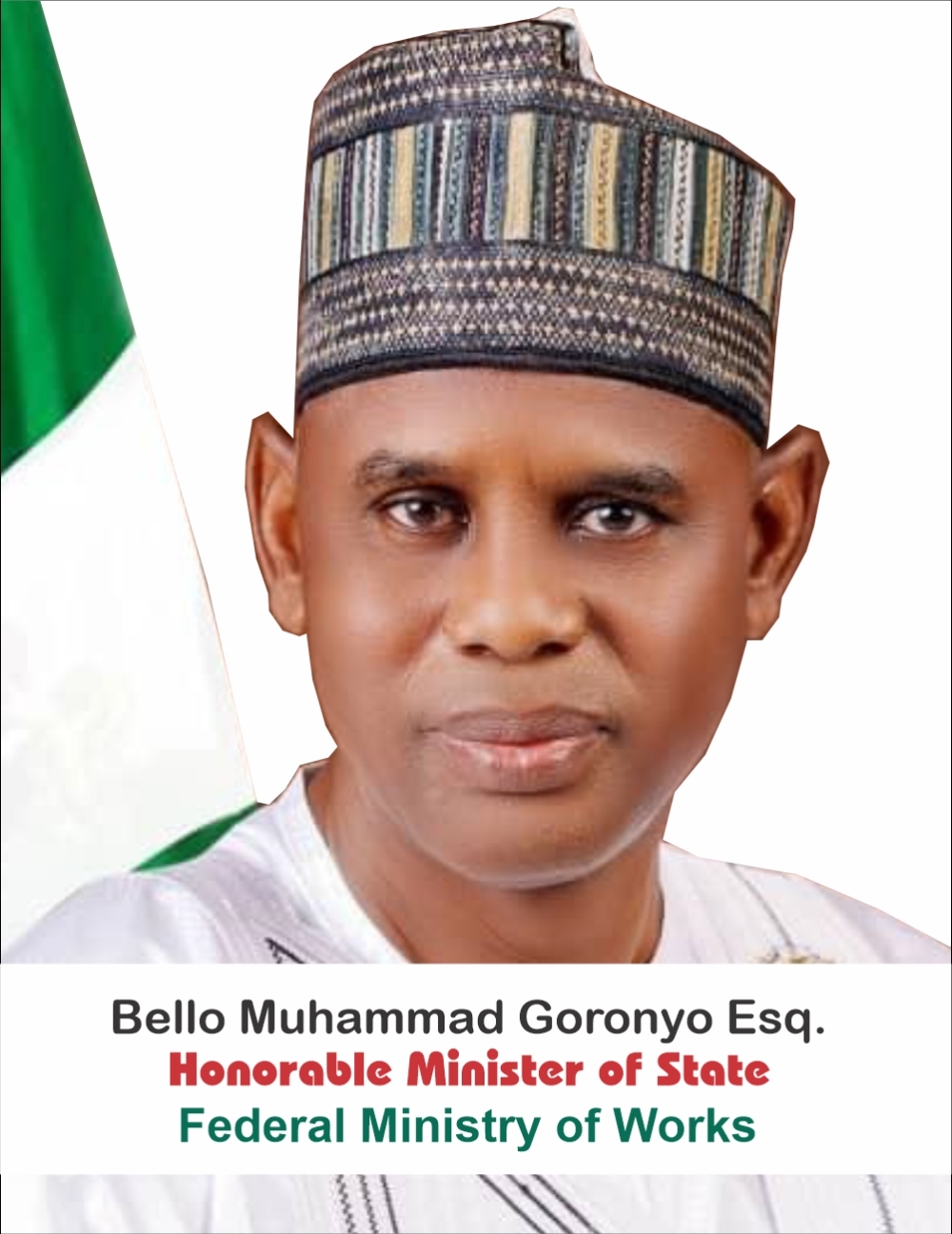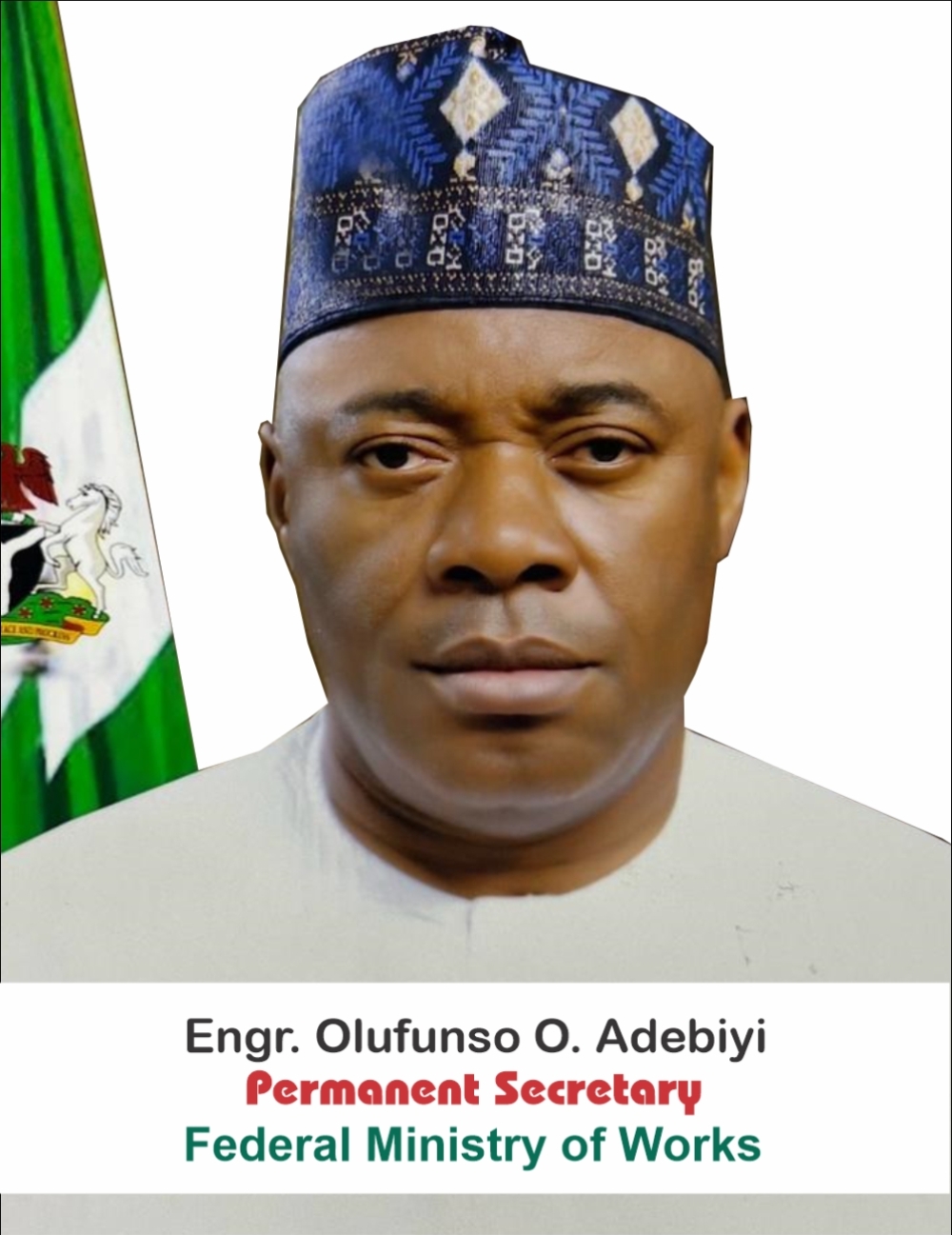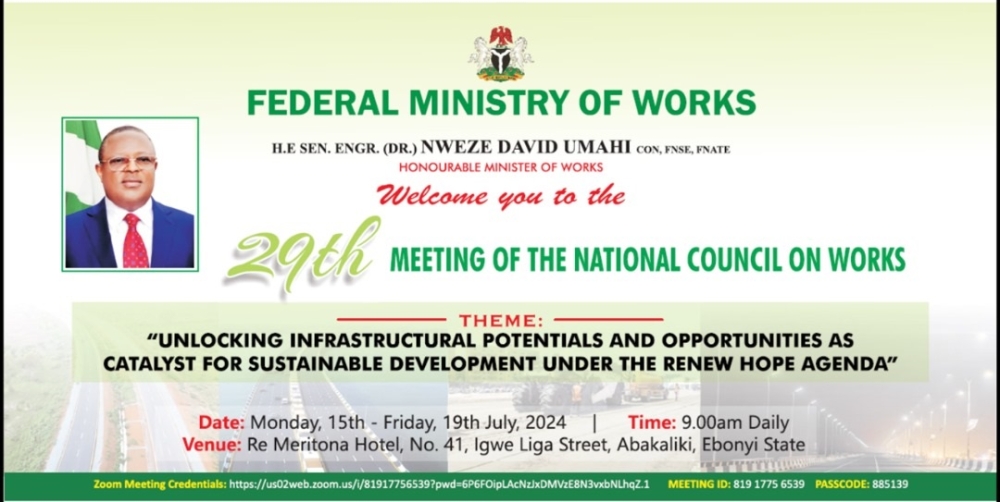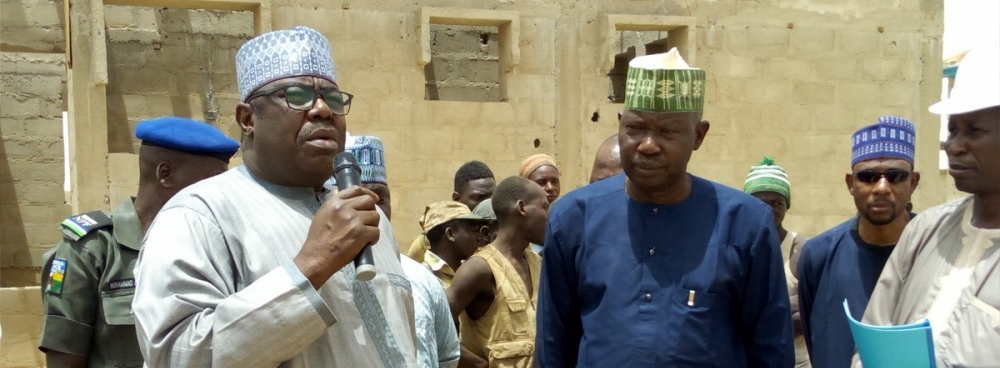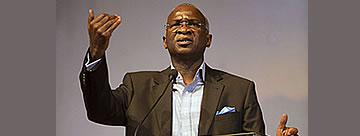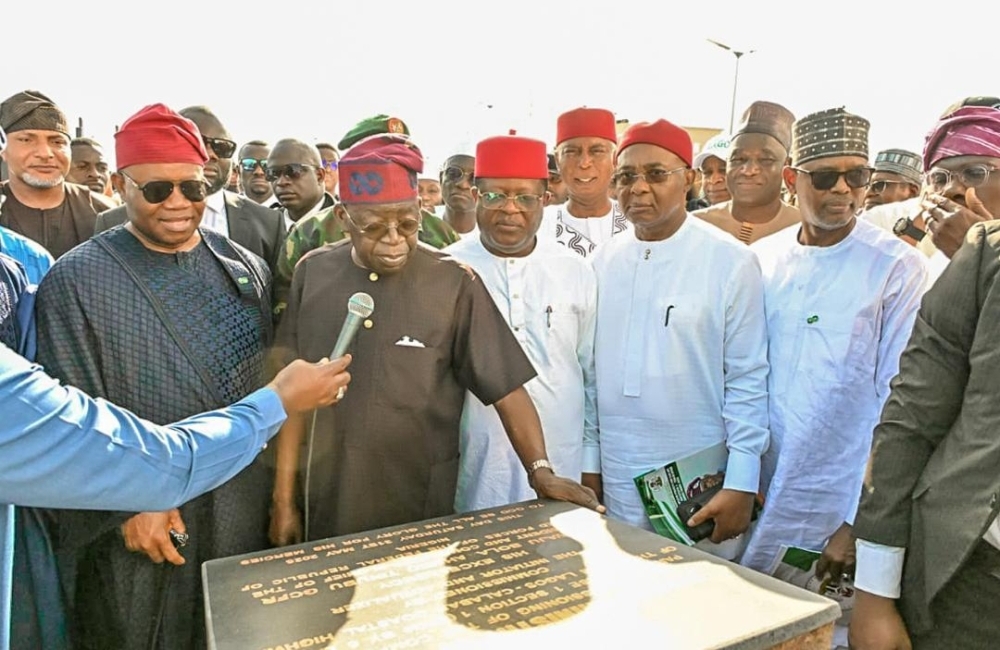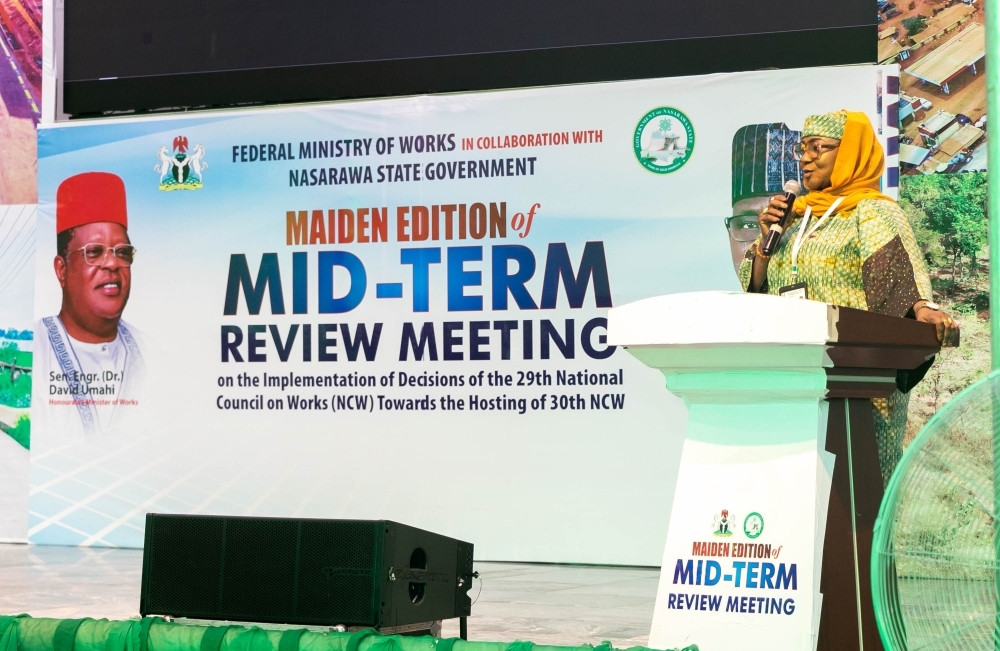Power Sector Reforms- Challenges And The Way Forward
Being The Text Of The Lecture Delivered By The Honourable Minister Of Power, Works And Housing, Mr Babatunde Raji Fashola, San At The Department Of Economics 2017 Public Lecture Series, University Of Lagos, On Thursday 13th July 2017
I thank you for inviting me to be your guest lecturer at the 2017 edition of your public lecture series.
I accepted this invitation for many reasons. First it was conveyed through Mr. Ayo Gbeleyi who served with me meritoriously as Honourable Commissioner and Head of PPP Office and he implored me to do the best I could to make time to accept.
Secondly, the topic which focuses on “Challenges and the way forward” resonates with my view of the power sector and I believe that of many, who acknowledge that the sector has challenges; more importantly the topic is solution driven and positive in outlook which is consistent with my attitude, that, instead of recrimination, reproach and cynicism, we should look for the way forward.
I will like to say that many right thinking and well-meaning Nigerians are now taking this view, which is that the problem of power in the country can be solved, and we all have different but very important roles to play.
I will come to this as I proceed, but I must warn that this may be a fairly long speech, because there is a lot to say, and because there is a lot happening in power, and more importantly because I believe one of the most important things I can do as a Minister is to simplify what is going on for the benefit of the public and to discuss it using street level terms and not technical terms.
The bottom line really is that people want to know when they will have stable electricity, why they do not have it, and what government is doing about it.
Permit me to share with you, what our road map is.
We recognise that our power supply is not enough and what we have done is do the simplest thing, get more power.
So our road map seeks to get, first incremental power, progress to stable power, and then achieve uninterrupted power.
From this road map it must be clear to any right thinking and well meaning person that this is a journey and not an event that will happen overnight.
As we progress on this journey, we will get to critical milestones from which we can look back and say we are now better off at that milestone, than when we started the journey.
I understand the urgency of now, to get the power, I understand the high level of expectation.
I know that they come from many years of broken promises and a change from government-managed power to privatisation of power.
While I fully support privatisation, I believe what took place in 2013 in the heat of politics was a privatisation that was well intentioned since 2005 but delivered with some deception in 2013 with the expectation of political profit.
It led many uninformed Nigerians to believe that once the privatisation was concluded, the assets sold to the Distribution companies (DisCos) and the Generation companies (GenCos) there was immediately going to be power.
I cautioned then that people’s expectations were being unduly raised without telling them that there was a lot of work to do.
While I believed that the APC government will do a better job, little did I expect that I would inherit the problem. But I am grateful for the opportunity from Mr. President, to contribute to solving a problem that I am deeply passionate about and I will offer nothing but my best while I am at it.
As I have said, there are challenges, which is why I accepted this invitation and they can be solved, which is why I have come to share my thoughts about the way forward.
I have also pointed out that we have a road map whose first objective is to get incremental power and this means power from gas, solar, wind, coastal waves, hydro dams, nuclear and bio mass.
I have also pointed out that all of us have roles to play.
I am inspired by the history of Nigeria that whenever we have united to confront a problem, we have never lost. The number of Nigerians interested in generating power is increasing daily and this is encouraging.
This is evidenced by dozens of letters and proposals I get daily, even though they are wrongly directed to the Ministry, because power is now privatised.
There are people who know about it, there are those seeking to make money from it, there are those who know absolutely nothing about it but are still seeking to try. The positive I take away from it is that we are increasingly looking in the right direction.
I will share a story with you, first for its humour and secondly for its consistency, with our road map to get the incremental power.
I had received a text on my telephone, one of the many hundreds I get daily since I published my telephone number many years ago.
This particular one was interesting because the sender alleged that he had found the solution to our energy needs and was wiling to share it with me.
I called him to discuss this “novel” idea he claimed to have. He then referred me to a news report that showed how somebody was generating electricity from a potato.
I then took the time to explain to him that this was not new technology but indeed what we had shared with school children in my time as Governor, in the Power Kids Club that we set up to introduce people to the fundamentals of electricity early in life.
Just as I was preparing this speech, one of my former state Executive Council members who served with me referred me to an online publication about generating electricity using biomass.
Ladies and gentlemen, these two instances confirm what I said about:
Increasing interest of Nigerians in solving the power challenge, which is positive and welcome.
Generating incremental power from all viable sources.
The hard truth is that generating electricity from potatoes or cow dung is possible. The question is viability and sustainability.
First, how much cow dung can we produce to keep the power going? Because even countries who have enough cows, like Brazil and can export beef, don’t use cow dung for power.
Similarly, how much potato can we produce to fire our power needs?
In any event, in a country where there is poverty and hungry people, and with the proven calorific and nutritional values of potato, I think it would be a poor choice to use it for power generation as opposed to using it for nutrition and well-being of children and people.
I will shortly come to specifics of what we are doing to resolve the challenges, but permit me as I have just clarified the situation about cow dung, potato, (which also by the way applies to all those who want to generate electricity by using waste) to also explain what I think is fundamental about power.
It is that there is no real problem in buying and installing a power plant. It is not different from you buying and installing a generator in your home.
The problem starts when you cannot get diesel or petrol, just as we usually don’t have enough gas supply either because of production shortages or vandalism.
The problem with your generator starts when you have to connect your neighbour and issues arise as to how you share the cost or what appliances your neighbour or even your family can switch on when the generator is running especially if it is not a very big one, in order to avoid damage.
The problem arises if the generator needs maintenance or repairs. Can you use it during repairs if you don’t have a backup?
What is true of the generators we install for ourselves is essentially true of the power plants we have as a country.
Those plants are nothing more than big generators. We connect them through 330KV wires, 132 KV wires, 33KV wires and 11 KV wires that transmit the power from the plant, carrying them across several hundreds of kilometres, injecting and sending them through about 183 sub-stations to the distribution companies before they get to our homes, offices, schools and so on.
In the process wires snap, equipment gets damaged by us or by natural wear and tear and requires replacement. Most of it, we have to import because we do not have enough as backup, the plant is not available during repairs.
In order to get incremental power therefore, we have resolved to use all our sustainable energy sources like hydro, gas, wind, solar, and coal (not potato and cow dung) and work is now going on at:
For Hydro -
a) Zungeru Hydro plant in Niger for 700 MW
b) Kashimbilla Hydro plant in Taraba for 40 MW
c) Dadin Kowa Hydro plant in Gombe for 29 MW
d) Gurara Hydro plant Nigeria for 30 MW
e) Later this year work should start on Mambilla Hydro for 3,050 MW
As for gas plants, there are many already such as:
Egbin 1,320
Geregu I & II
Omotosho I
Omotosho II
Olorunsogo I
Olorunsogo II
Alaoji
Ibom
Calabar
Ughelli
to mention just a few, all of which are challenged by Debts owed from the previous administrations, lack of sufficient gas or vandalism of existing gas lines or a combination of them.
Gas supply is the responsibility of the Ministry of Petroleum Resources and its parastatals like NNPC, Nigerian Gas Company and others.
We are working with them to improve on supply of gas to these plants to ensure that their redundant capacities and idle turbines come back into operation to produce electricity.
We have just concluded repairs on Afam IV Power Plant that was plagued by a damaged transformer which we replaced in order to restore 100 MW of gas fired power to the grid.
Simultaneously there is a Presidential initiative with General Electric through our Ministry to deliver 240 MW of emergency power to the site of Afam III using the existing gas resources there.
The turbines are already in country and installation should be complete within year.
As for wind energy, we are completing the abandoned 10MW Katsina wind farm project to pilot wind energy development and if sustainable, we can expand it.
There is no recorded coal power production today. The last one at Orji River Coal Power Plant in Enugu built by the colonial government had been dismantled when I visited.
But we are working with a group that shows the commitment to deliver up to 3,000MW of coal power in the Benue/Kogi belt where there are proven and sustainable deposits of coal about 20 kilometres from the intended power site.
Solar power presents the real window of opportunity to quickly increase power and also give people access.
We have shown that we can deliver solar by completing the 1.2MW solar project in the lower Usman Dam area. We have signed power purchase agreements with 14 developers who potentially can deliver 1,125 MW of solar.
We are partnering with Jigawa state to deliver about 1,000 MW of solar power at a site of 2,000 hectares already delivered to us by the state government. The project is at design and preparation stage.
We have completed the energy audit to deliver independent power to 37 universities and 7 teaching hospitals and one of them is the University of Lagos.
27 (TWENTY-SEVEN) of those plants will be solar plants.
These are only one side of what government is doing to deliver incremental power through solar.
The other side is what citizens have started on their own with solar.
Some of the ones I can recall are those of an oil marketing company that is now powering its petrol filling stations by solar, and initiatives by other groups which I have helped to launch to deliver solar packs to unconnected communities.
Recently, the Acting President also commissioned an Independent Solar Power facility at a village called Wuna in Abuja that had not been connected to the Grid.
For the avoidance of doubt solar is the new power, its appeal is very strong with young people and it provides a unique opportunity to close our power supply deficit.
My final word on these sources of power generation is that they speak to the idea of an energy mix; and we have delivered one for Nigeria which targets 30% renewable of our total energy production by 2030.
Generation of power is not the end of the power value chain. On the contrary, it is just the beginning. To reach our homes the power has to be transported.
This is the Transmission System and the National Grid that co-ordinates 8 transmission regions with 183 substations from the National Control Centre in Oshogbo.
For the record, this Grid is also somewhat misunderstood. People have said it is the problem because it can only carry 5,000 MW.
I will correct this unchanging opinion first by stating that under the Buhari Administration, the Grid has expanded to 6,200 MW because we have completed transmission stations in places like Ikot Ekepene, Okada, Alagbon, Ajah, Katampe, Sokoto and awarded many more in places like Damboa, Pankshin, Osogbo, Kumbotso, Odogunyan to mention a few.
In the last few days we completed work at:
Kukwaba substation in Abuja
Increased transformer capacity at
Ajah substation in Lagos
Mayo Belwa substation in Adamawa
The logic therefore is that if projects to expand the Grid are being completed and new ones started, it is either ignorance or mischief to continue to argue that the Grid cannot wheel more than 5,000 MW.
The correct, informed and sensible view is that the Grid is dynamic and must grow as power production grows.
How we got to this Grid improvement is the story that I will share now.
Since the integrated power project started almost a decade ago, several projects were issued as contracts to develop the transmission system.
Many of the equipment imported by contactors were trapped at the port in over 800 containers for almost 10 (TEN) years because Government did not budget to pay the contactors.
It is in the first full budget of the Buhari Administration that a budget for payment was presented and approved in 2016.
At the time of preparing this speech, we have paid N930, 229, 418 (NINE HUNDRED AND THIRTY MILLION, TWO HUNDRED AND TWENTY-NINE THOUSAND FOUR HUNDRED AND EIGHTEEN NAIRA) and resultantly 387 (THREE HUNDRED AND EIGHTY SEVEN) containers have now been recovered and handed to the contractors for deployment to their site.
Some of those sites whose projects have been held back were:
1. Design and construction of 2x60 MVA 132/33KV transmission substations at Kachia Kaduna State.
2. Ganmo-Ogbomosho 132KV transmission Line Project (45KM) Kwara-Oyo.
3. Supply of Aluminum conductor composite core for Re-conducting of Onitsha New Haven 330KV transmission line.
4. Construction of 132KV DC TRX line Yola-Song-Little Gombe-Mubi-Gulak.
5. Construction of Onitsha Oba-Nnewi-Ideato Okigwe 132KV Double Circuit Transmission.
6. Even the completion of the 215 MW Kaduna plant was held back because some of those equipment were previously trapped in the port.
We are currently planning to maintain and upgrade the carrying capacity of some old lines by re-conducting them and expanding their transmission capacity.
But while the transmission is being upgraded the last mile of the value chain, which is the distribution end, must be ready to accept and distribute the power.
For the record, there are 11 Distribution Companies namely:
– Kaduna Distribution Company
– Kano Distribution Company
– Yola Distribution Company
– Jos Distribution Company
– Abuja Distribution Company
– Ibadan Distribution Company
– Ikeja Distribution Company
– Eko Distribution Company
– Benin Distribution Company
– Port Harcourt Distribution Company
– Enugu Distribution Company
Many of them inherited old distribution assets like feeders, Transformers, Ring main units and conductors (the lines) to mention a few.
If you are observant you will see falling, bending, misaligned poles and wires in your streets and neighbourhoods.
They don’t look as organised as those you see abroad.
These are the old assets sold to the DisCos which must be upgraded, repaired and replaced over time in order to be able to effectively distribute power (received from the Transmission Company) to your offices, schools, shops and homes.
Therefore, the Transmission Company is a service provider to the DisCo, who is the customer just as the DisCo is the service provider to you and I who are customers.
Therefore, if any one of them is inefficient, you and I don’t get power or it is unreliable.
You will have heard of load rejection and be wondering why what is not enough is being rejected.
Each DisCo has a fixed % of the total amount allocated to it and the DisCo then nominates the area within their business area where they want TCN (the transmission) to send power.
| Disco |
% of total allocated in MYTO2 |
| Abuja |
11.5% |
| Benin |
9% |
| Enugu |
9% |
| Eko |
11% |
| Ibadan |
13% |
| Ikeja |
15% |
| Jos |
5.5% |
| Kaduna |
8% |
| Kano |
8% |
| Port Harcourt |
6.5% |
| Yola |
3.5% |
Normally as a business they will nominate supply to places where customers are paying and where their equipment is working.
In places where collection is difficult or equipment is not functioning, they will refuse to energise their power intake or are unable to do so. This is what is called load rejection.
What then happens is that the Control Centre tells the GenCos to reduce their power production because if it is not taken, it results in high frequency which can damage the generating unit, create loss of power, and sometimes result in Grid collapse depending on how severe the outage is.
The problems came on the Horizon as Gas is improving and Rains are arriving to increase power production on Thermal and Hydro plants.
Eligible Customer
This is why I have exercised the power conferred on me by the Act to declare what is called “Eligible Customer”.
What this simply means is that certain classes of consumers that consume a lot of energy like factories, hotels, state governments or local government secretariats, whose DisCos have poor distribution equipment, can apply to NERC for eligibility to build the distribution facility that the DisCo cannot or refuses to build, and then take their power direct from the GenCo.
Clearly the purpose is to increase service and access to power and we have already received a number of requests; however the power is not cheap.
The cost of building the distribution asset means that it comes at a premium, but offers access to more realistic power, which is cheaper than self-generation and diesel, which is between N60-N70 per kw/h.
The success of this initiative offers many prospects for success:
Competition by small GenCos
Response by DisCos to upgrade their equipment
Disaggregated tariff paid by eligible customers who are high end consumers without materially adversely affecting regular domestic consumers, (whose tariff can only be changed by a major tariff review which I will explain) and creating an opportunity for cross-subsidization. (Rich and heavy consumers bear some of the cost of the poor and small consumers.)
Tariff
This is as best as I can attempt to summarize the value chain and what we are doing. There are of course more technical issues that time and the forum do not permit or compel. However, we must all recognize and accept that tariff is a cost that we must all pay to keep the value chain viable as a business.
It is measured by meters (which I will come to) but every consumer must pay. It is a criminal offence in Nigeria and all over the civilized world to use public electricity and not pay for it.
Tariff is not fixed by the Minister. I have no such power. Tariff is proposed by the DisCos after consultation with their customers, and then approved by NERC (the Nigerian Electric Regulatory Commission) during a major Tarrif review.
The process of determining tariff takes into consideration the amount of power (4,500 MV in 2015) the number of consumers on record who will pay it (6,000,000), the cost of producing and transporting power, operating cost of the operators, exchange rate, inflation and interest rate; and the tariff for each class of consumer is determined.
The classes of consumers are R1, R2, R3 and MD. The tariff of each class is different in their DisCo while the tariff of R2, R3 and M are different from DisCo to DisCo.
It is only R1 that has a fixed tariff of N4 per/kwh across all DisCos and it was not changed in the last tariff review.
I spoke about a major tariff review; there is also minor tariff review.
The 2015 tariff review gave us a 10-year tariff that should be declining as the sector stabilizes.
It provides for a major review after 5 years, and minor reviews every 6 (SIX) months to keep the market abreast of the economic realities of foreign exchange, gas price, and inflation changes.
If we want to experience reliable electricity, we must accept the reality of tariffs and possible upward or downward reviews.
We must stop going to court to get injunctions to stop tariff reviews. We don’t do so, when exchange rate, inflation and prices of other commodities change. (The Court of Appeal has reversed the decision of the Federal High Court which stopped the implementation of the last tariff review).
What we must insist on, is the provision of meters, so that we can monitor and control what we consume.
Government must also not interfere with the power of the regulator when it fixes tariff in the way the last administration ordered a reversal of tariff in order to win electoral votes in 2014.
It created a massive debt for Nigeria, because while the Government ordered a reversal of Tariff, it did not reduce Exchange Rate, Interest Rate , cost of wages or cost of gas and other inputs necessary to produce power.
Why should Nigeria carry a debt created by an individual’s electoral ambition?
This is what the Buhari administration has to contend with.
It might interest members of the public to know that most if not all the oil & gas producing communities where there is electricity connection do not pay for power, somebody is carrying that cost.
It is worsened by the fact that the light bulbs are on during the day and I am told in some communities that they are never switched off. This is waste. What is wasted will never be enough.
Meters
One of the omissions of the privatization carried out by the last administration was lack of compulsory metering before the privatization.
This is compounded by an inaccurate consumer projection of 6 million households, without a consumer audit. These are the problems the Buhari government is now trying to fix with the Power Sector Recovery Program, which I will discuss later.
What the public must know about meters are:
Meters are measuring and safety equipment that must be tested by NEMSA before they can be used.
Different classes of consumers require different types of meters: Single and multiple phases to ensure that your meter matches your consumption.
Meters by the same manufacturers are calibrated for each DisCo use, such that you cannot use a meter calibrated for Ikeja DisCo in Eko DisCo without Re-calibration.
Meters cannot be installed without visit to the home for audit assessment.
DisCos liquidity problem makes it difficult for them to access credit to order and supply meters. One DisCo requires over N20B to meter.
The consumer base does not capture all those who consume power, and without meters, the DisCos aggregate power distributed to a destination and estimate the bill for the known consumer who is perhaps paying for the neighbour who is not known or is stealing energy; (whistle blowing for energy theft is a civic responsibility)
Those who are resisting the installation of meters and assaulting DisCo staff who seek to install meters must stop it. It is a criminal offence.
N37 Billion meter contract
The government of Nigeria had in 2003 (14 years ago) issued a contract for the supply of 3 million meters to NEPA/PHCN
That contract was not performed until the privatization was concluded in 2013, and was inherited by the Buhari government as a court case in which a judgment of N119Billion had been signed against government. We have worked to get the case out of court , negotiate the judgement and go back to the N37Billion contract to see how many meters it can now provide, and how to install them. We are still finalising the terms of agreement.
Gas supply
Although we get power from Hydro and we plan more from solar and coal, I cannot conclude this speech without speaking a little about gas which is managed by the Ministry of Petroleum Resources but which is the fuel for 26 (TWENTY-SIX) plants out of the 29 (TWENTY-NINE) power plants in the country.
2016 was a particularly difficult year for our gas fired turbines because there were at least 16 major gas pipeline attacks with explosions, between February and May of 2016.
This is why we did not experience stability until August when the rains came and we could rely on the Hydros, whose capacity had been upgraded.
Those pipelines are gradually now being repaired as a result of relative peace secured by initiatives of the President, Vice President, Minister of Petroleum Resources, Governors and other stakeholders.
Power Sector Recovery Programme (PSRP)
Without a doubt the privatisation of power is the way to go.
Admittedly it has not yet delivered the kind of results we were all made to expect, for some of the reasons I have stated; political interference, liquidity, metering, debts, governance, technical capacity of operators and the political dishonesty with which Nigerians expectation were raised to the sky.
But I have no doubt at all, having studied the privatization of Brazil, Mexico, India, South-Africa and China (who went through some or all of our current challenges), that reliable electricity will happen in Nigeria.
It is not an event, it is a journey marked by positive trends that have occurred and will occur as the right solutions are deployed to challenges.
This is what the Power Sector Reform Program (PSRP) seeks to achieve.
Because of the current transition challenges, some people have called for the cancellation of the privatization, but such a course of action (which I do not support) has consequences: -
Government will be breaching its own contract in the same way we cancelled the privatization of refineries in 2007 and will send a negative investment signal that we do not respect agreements;
Government will have to refund in dollars, all the monies paid by the DisCos and GenCos most of which have been spent on almost 50,000 workers of PHCN who had to be paid;
Government will now have to re-employ those or other workers back to operate the assets and again increase salary and pension costs, when our recurrent cost is above 70% of budget today.
Instead of doing these, Government believes that the lapses in the privatization can be re-engineered, retrofitted or reformed to deliver.
The PSRP is therefore a set of policies and actions aimed at restoring credibility, liquidity, transparency, efficiency, good governance and improved service delivery to the power sector.
The PSRP is meant to implement and deliver the power component of the Economic Recovery & Growth Plan (ERGP) of the Buhari Government and it is already being implemented.
N701 Billion NBET payment assurance programme
Metering plan (already discussed)
Constitution of Boards of Agencies for Governance (NERC); Rural Electrification Agency (REA)
Change of Government Representatives in DisCos
Procurement and Capital Requirement Guidelines for Discos by NERC
Energy mix, already done to achieve diversity of energy sources and energy security
Tariff Computation Reform
Communication and Advocacy
Technical capacity and equipment upgrade by DisCos for loss restriction
Legislation to restore and punish energy theft and damage to power assets
Ladies and Gentlemen, these are some of the challenges the power sector faces and the way forward as formulated by the Buhari Government in order to reform the power sector for efficient delivery.
As you will have seen, many if not all of them are man made.
Therefore if men and women create problems , only men and women can solve them.
You and I therefore have critical roles to play , and I have signed up to play my own.
Have you ?
Thank you for your attention.
Babatunde Raji Fashola, SAN
Honourable Minister of Power, Works and Housing
